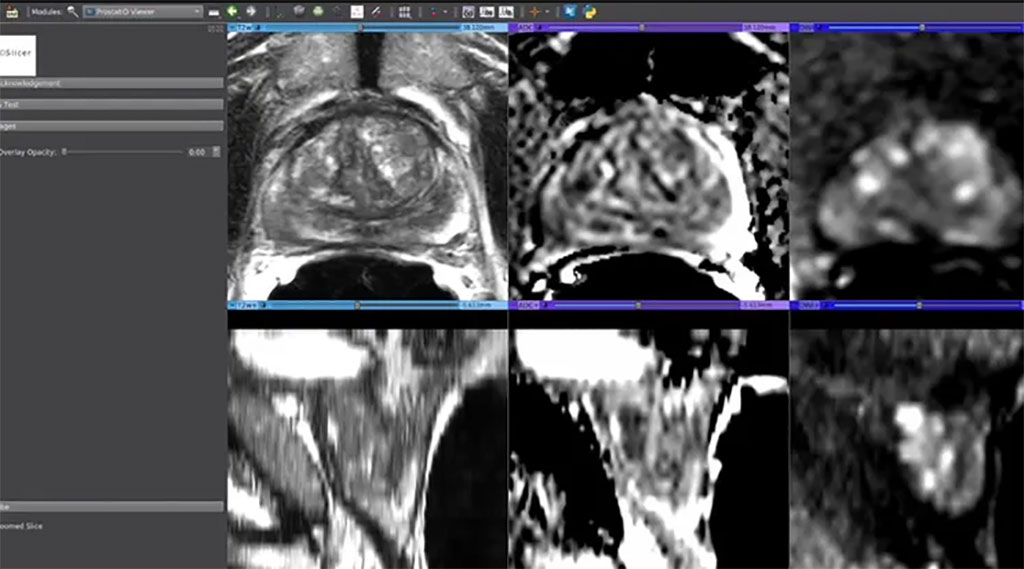CADx System Combines AI with Low-Cost MRI Scans to Speed up Prostate Cancer Detection
Posted on 29 Mar 2023
The current protocol for treating prostate cancer involves a number of uncomfortable and unreliable procedures. One example is the PSA test, which measures the level of prostate-specific antigen (PSA) in the blood and can sometimes indicate the presence of prostate cancer. However, this test is not conclusive and often leads to additional testing such as MRI to identify any abnormalities in the prostate. The development of new blood, urine or tissue tests for prostate cancer could be very promising but such tests do not reveal the location or extent of the cancer, which is something that imaging with artificial intelligence (AI) can do.
Similarly, digital rectal exams (DREs) have been found to be just slightly over 50% accurate due to the significant number of prostate cancers located in the anterior aspect of the gland, which is far from the rectum and cannot be felt. In addition, while biopsies can confirm the presence of cancer, their random or targeted sampling often miss cancerous lesions. Biopsies are also costly, carry a risk of infection, and can lead to false positives. Therefore, biopsies are not an effective screening method for prostate cancer but can confirm a diagnosis if used in conjunction with imaging guidance. Now, a powerful computer-aided diagnosis (CADx) software device is poised to change the standard of care for prostate cancer screening, detection and diagnosis by avoiding the expensive pitfalls of current prostate cancer pathways.

The ProstatID AI software from Bot Image, Inc. (Omaha, NE, USA) is not only intended for cancer detection and diagnosis but also for prostate cancer screening using MRI and a non-invasive/non-contrast "short-form" of MRI sequences known as bi-parametric MRI (bpMRI). bpMRI eliminates the need for expensive, time-consuming contrast agents that can damage the kidneys, thereby facilitating a low cost and easily accessible MRI. Bot Image's Prostate AI has enormous implications for men's health and healthcare cost savings, as it is a highly accurate tool for active surveillance. This means that periodic low-cost MRI scans supplemented with the AI interpretation of ProstatID can be conducted, resulting in significant savings.
In clinical trials conducted by Bot Image, the algorithm performed with 93.6% accuracy when used on its own (with area under the sensitivity-specificity curve). Additionally, physician performance was considerably enhanced. In comparison, no other screening method comes close to matching ProstatID's level of sensitivity, specificity, and ability to locate and determine the extent of cancer. ProstatID has been developed using thousands of proprietary MR image sets, radiologist interpretations, segmented prostate gland image sets, pathology laboratory results, correlation data, and initial AI interpretations to aid in the early diagnosis of prostate cancer. Bot Image has received FDA-clearance for its ProstatID AI software for cancer detection and diagnosis, as well as for prostate cancer screening using MRI and bpMRI.
Related Links:
Bot Image, Inc.













